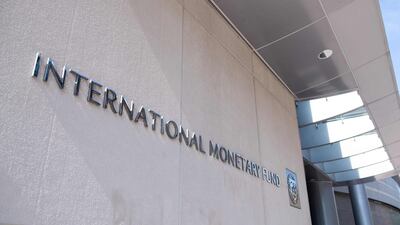The Covid-19 pandemic underpins the need to deal with the problem of corruption, which the International Monetary Fund warns may hamper the response of governments to the global crisis and deepen its economic impact on struggling nations.
Governments around the world are playing a central role in the economy, providing financial lifelines to people and firms. The expanded role is crucial, however, it has increased opportunities for corruption, three senior IMF officials said in a joint blog post.
For funds and benefits of fiscal measures to reach the people who need it most, governments must implement transparent reporting and audit and accountability procedures, they said.
“During this crisis the IMF has not taken its eye off the ball of our governance and anticorruption work,” the fund's fiscal affairs department director Vitor Gaspar; its strategy, policy, and review department director Martin Mühleisen and general counsel Rhoda Weeks-Brown, wrote.
“Our message to all governments has been clear: spend whatever you need but keep the receipts, because we don’t want accountability to be lost in the process.”
The IMF has significantly increased its focus on governance and corruption over the last few years. Governance safeguards for the pandemic-related assistance are part of the Washington-based lender’s effort to improve its member countries’ efforts to tackle corruption.
“We speak more candidly and in-depth about governance issues with countries,” they wrote.
Covid-19 has killed more than 654,000 people worldwide and infected about 16.5 million others, according to Johns Hopkins University, which is tracking the pandemic. The world economy is facing its deepest recession since the Great Depression and is set to shrink 4.9 per cent this year before making a sluggish recovery in 2021, according to IMF projections.
The fund expects the world economy to lose more than $12 trillion (Dh44.1tn) in GDP this year and next. Two thirds of governments have already pumped about $11tn into their economies to support businesses and protect jobs. However, most emerging and developing nations are still struggling to revive growth.
The IMF and the World Bank are providing credit facilities and grants to help the poorest nations to strengthen their health infrastructure and deal with the economic fallout from the pandemic. As of mid-July, 72 countries had received financial assistance from the IMF’s emergency financing instruments.
Last week, the fund temporarily increased the amount of financing member countries can request in a year and removed caps on the number of funding disbursements poor countries can secure. The rise in annual limits on access to resources in its General Resources Account and the Poverty Reduction and Growth Trust, came as an “unprecedented number of member countries" sought financial support, it said at the time.
Although the fund has provided “quick disbursements to meet urgent needs”, enhanced governance measures to track Covid-19-related spending have been part of the emergency financing for countries, according to the blog post.
Borrowing members have committed to publish independent ex-post audits of crisis-related spending details of procurement contracts on the government’s website, including identifying the companies and their beneficiaries receiving the contract.
“Curbing corruption requires government ownership of reforms, international cooperation and a joint effort with civil society and the private sector," the fund's officials said. "It also involves political will and the assiduous implementation of reforms over months and years.”
“This crisis will sharpen our focus on governance in the years ahead because of the pandemic’s devastating effects and costs for people and economies. If ever there was a time for anticorruption reforms, it is now.”


